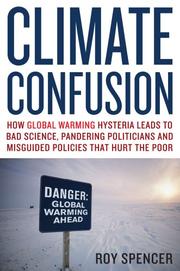| Listing 1 - 10 of 30088 | << page >> |
Sort by
|
Book
ISBN: 3657763422 Year: 2007 Publisher: Paderborn : Verlag Ferdinand Schöningh,
Abstract | Keywords | Export | Availability | Bookmark
 Loading...
Loading...Choose an application
- Reference Manager
- EndNote
- RefWorks (Direct export to RefWorks)
Im Horizont der Globalisierung fordert insbesondere die Politik ein globales Ethos, das das friedliche Zusam-menleben der verschiedenen Nationen mit je eigenen Kulturen, Wert- und Weltanschauungssystemen in der Einen Welt ermöglichen soll. Erwartungen richten sich diesbezüglich an die Weltreligionen mit ihrem Selbstan-spruch, sittliche und spirituelle Ressource eines fried-lichen Zusammenlebens zu sein. Neben der Ethostradi-tion der katholischen Kirche werden angesichts der geostrategischen und wirtschaftlichen Bedeutsamkeit In-diens und Chinas die Denksysteme von Hinduismus, Kon- fuzianismus und Daoismus hinsichtlich ihres Beitrags zu einem globalen Ethos befragt. Ohne Ignoranz gegen-über oder Harmonisierung der festgestellten Andersheit des Anderen wird eine Theologie der Aufmerksamkeit für den 'Anderen' vorgelegt, die aus den Lernerfahrungen des interreligiösen Dialogs Impulse für die politische Gestaltung einer Weltarchitektur bereitstellt.
Book
ISBN: 9781420502442 1420502441 Year: 2009 Publisher: Detroit, Mich. : Lucent Books,
Abstract | Keywords | Export | Availability | Bookmark
 Loading...
Loading...Choose an application
- Reference Manager
- EndNote
- RefWorks (Direct export to RefWorks)
Provides a clear, balanced, and thoughtful examination of global warming.
Book
ISBN: 1504475542 Year: 2020 Publisher: [Place of publication not identified] : IEEE,
Abstract | Keywords | Export | Availability | Bookmark
 Loading...
Loading...Choose an application
- Reference Manager
- EndNote
- RefWorks (Direct export to RefWorks)
The future has already arrived in the form of our children. These children are raising their voices all around the world, demanding policy makers and technologists take the necessary steps to secure their futures. This includes utilizing emerging technologies in a way that prioritizes people and planet over power and profits. At a physical level, human well being is critically dependent on environmental sustainability. Beyond questions of happiness or mood, basic human flourishing means having access to potable water and clean air. Our symbiotic relationship with nature, however, has been severely damaged due to actions that have resulted in a climate crisis that, if not immediately addressed, will lead to irreversible ecological and human devastation. A combination of a courageous socioeconomic transformation and accelerated technological innovation is necessary to mitigate this threat. For more information on this and other similar topics, visit https://ethicsinaction.ieee.org/.

ISBN: 9781594032103 1594032106 Year: 2008 Publisher: New York: Encounter Books,
Abstract | Keywords | Export | Availability | Bookmark
 Loading...
Loading...Choose an application
- Reference Manager
- EndNote
- RefWorks (Direct export to RefWorks)
If you listen to the media, you would think that man-made environmental catastrophe was about to engulf the world and imperil civilization. From Al Gore's An Inconvenient Truth to nightly jeremiads about CO2 emissions and carbon footprints, we are bombarded around the clock with alarmist reports that disasterous global warming is on the rise and that it's our fault. In Climate Confusion, noted climatologist Roy Spencer shows that fears about global warming are vastly exaggerated and are driven by politics, not truth. He shows that a global superstorm has already arrived--but it is a storm of hype and hysteria. Climate Confusion is a ground-breaking book that combines impeccable scientific authority with great wit and literary panache to expose the hysteria surrounding the myths of global warming and climate change. Spencer shows that the earth is far more resilient than exopessimists pretend and that increasing wealth and technology ingenuity, far from being the enemies of the environment, are the only means we possess to solve environmental problems as they arise.--Provided by the publisher.
Book
Publisher: Oxford: Lion,
Abstract | Keywords | Export | Availability | Bookmark
 Loading...
Loading...Choose an application
- Reference Manager
- EndNote
- RefWorks (Direct export to RefWorks)
Book
ISBN: 0662581709 9780662581703 Year: 1992 Publisher: Ottawa: Ministre des approvisionnements et services (Canada),
Abstract | Keywords | Export | Availability | Bookmark
 Loading...
Loading...Choose an application
- Reference Manager
- EndNote
- RefWorks (Direct export to RefWorks)
Book
ISBN: 9789073361010 907336101X Year: 1990 Publisher: Amsterdam: Greenpeace international,
Abstract | Keywords | Export | Availability | Bookmark
 Loading...
Loading...Choose an application
- Reference Manager
- EndNote
- RefWorks (Direct export to RefWorks)
Book
Year: 1988 Publisher: Brussel : Koninklijke academie voor wetenschappen, letteren en schone kunsten van België,
Abstract | Keywords | Export | Availability | Bookmark
 Loading...
Loading...Choose an application
- Reference Manager
- EndNote
- RefWorks (Direct export to RefWorks)
Book
Year: 1949 Publisher: Paris : Presses universitaires de France,
Abstract | Keywords | Export | Availability | Bookmark
 Loading...
Loading...Choose an application
- Reference Manager
- EndNote
- RefWorks (Direct export to RefWorks)
Book
Abstract | Keywords | Export | Availability | Bookmark
 Loading...
Loading...Choose an application
- Reference Manager
- EndNote
- RefWorks (Direct export to RefWorks)
Local discourses around the world draw on multiple resources tomake sense of a “travelling idea” such as climate change, includingdirect experiences of extreme weather, mediated reports, educationalNGO activities, and pre-existing values and belief systems. There is nosimple link between scientific literacy, climate-change awareness, and asustainable lifestyle, but complex entanglements of transnational andlocal discourses and of scientific and other (religious, moral etc.) ways ofmaking sense of climate change. As the case studies in this volume show,this entanglement of ways of sense-making results in both localizationsof transnational discourses and the climatization of local discourses:aspects of the travelling idea of climate change are well-received,integrated, transformed, or rejected. Our comparison reveals a majorfactor that shapes the local appropriation of the concept of anthropogenicclimate change: the fit of prior local interpretations, norms and practiceswith travelling ideas influences whether they are likely to be embracedor rejected.
| Listing 1 - 10 of 30088 | << page >> |
Sort by
|

 Search
Search Feedback
Feedback About UniCat
About UniCat  Help
Help News
News